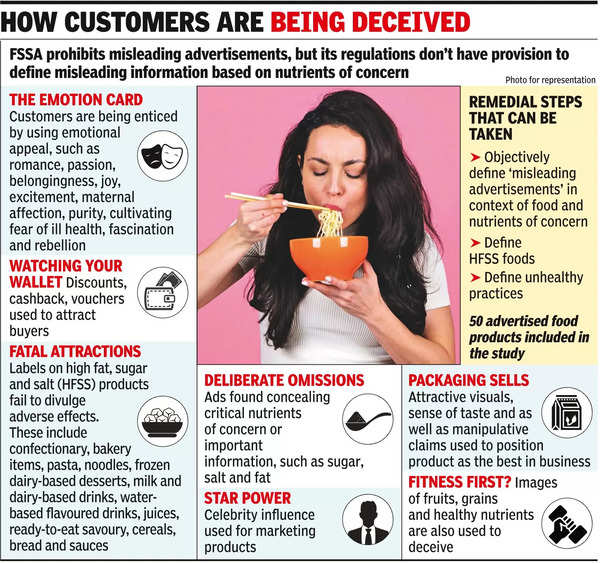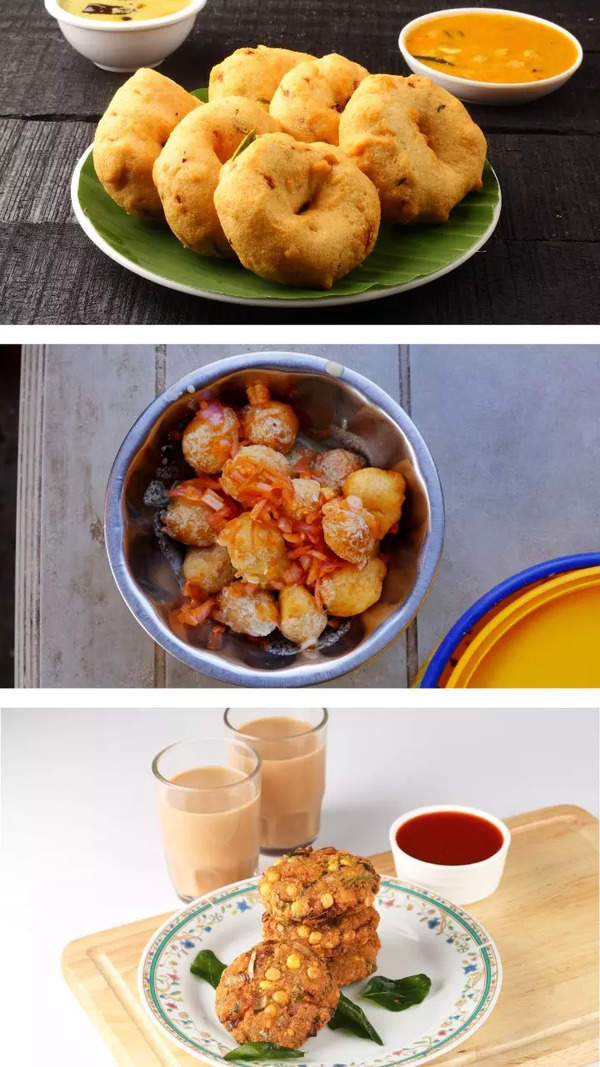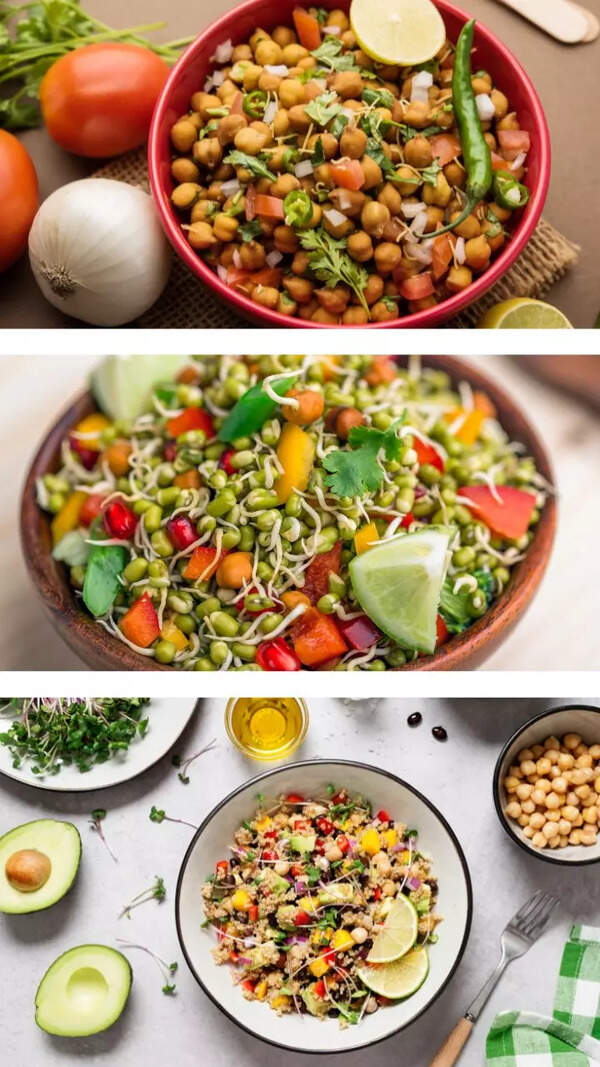- News
- City News
- delhi News
- 50 shades of grey in advertising: Health warnings take backseat
Trending
50 shades of grey in advertising: Health warnings take backseat

NAPi said that the most recent guidelines from the Indian Council of Medical Research-National Institute of Nutrition should be implemented to alleviate the burden of non-communicable diseases, including heart and diabetes, associated with the consumption of HFSS food products.

While releasing its report, ‘50 Shades of Food Advertising’, on Friday, NAPi recommended a halt to misleading food advertisements. Delineating the deceptive practices of food companies, the group said that food advertisers frequently resorted to emotional appeals and celebrity endorsements to entice consumers into purchasing their products but often failed to disclose the actual nutritional content of the items, particularly the nutrients that could be of concern to consumers. By focusing on the emotional aspects and star power, advertisers effectively diverted attention away from the composition of the food items they are promoting.
The report revealed that the 50 advertised products belonged to various food categories, including "confectionery, fine bakery wares, pasta, noodles and other products, etc.” It discovered that in nine of the 50 advertisements, HFSS products were being sold with additional offers, such as cash-back, vouchers or discounts. Furthermore, 22 of the 50 advertisements employed emotional appeals, including romance, passion, belongingness, enhancing creativity and human capability, having fun, joy, excitement, maternal affection, purity, cultivating fear of ill health, fascination, and rebellion.
Paediatrician Dr Arun Gupta, convenor of NAPi, spoke to the media about govt's plan to curb the consumption of unhealthy diets. He said, "Curbs on misleading ads is the least the Indian govt can do and it is part of its plan to stop the rising consumption of unhealthy diets and thus a fight against obesity and diabetes.”
Gupta suggested that while amendments could take time, govt could mandate that any advertisement must prominently display the nutrients of concern per 100 grams or millilitres. He said the public could benefit if Parliament proposed a bill to address the issue of obesity. He warned that failing to curb the rising trend of obesity would lead to an increased burden of disease and economic strain on individual families and the healthcare system as a whole.
The 2023 ICMR-INDIAB study shows there are 100 million cases of diabetes and one in every four Indian is either suffering from diabetes or is pre-diabetic or obese. The more recent ICMR -NIN’s ‘Dietary Guidelines for Indians’ reveal that more than 10% of 5-19-year-olds are pre-diabetic.
The report claims that the advertisements in question are deceptive on several fronts. The majority of food advertisements fail to disclose “important information” about nutrients of concern, which is a requirement under the Consumer Protection Act 2019. Furthermore, the Advertisement Code of the Cable TV regulation Act, 1994, states, “No advertisement which endangers the safety of children or creates in them any interest in unhealthy practices …shall be carried in the cable service”. The report suggests that all food product advertisements have the potential to encourage unhealthy habits.
Dr Vandana Prasad, a community pediatrician and member of NAPi, highlighted the significance of the nutrient profile model and thresholds for sugar, sodium and fats in 18 food product categories provided by the World Health Organization’s Southeast Asia regional office. WHO recommended prohibiting the marketing of products that exceed the thresholds.
Prasad said that the ICMR-NIN guideline, which provides thresholds for sugar, high fat, and sodium in both solid and liquid foods, should be utilised for creating regulations and establishing an official definition of HFSS foods.
End of Article
FOLLOW US ON SOCIAL MEDIA










